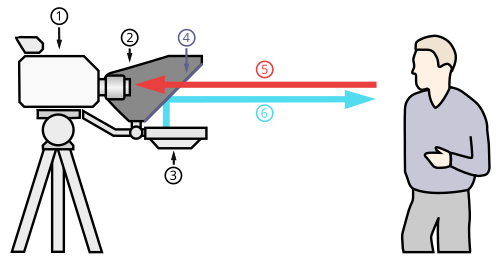A two-way mirror, also called a one-way mirror, is a pane of glass with a partially reflective, partially transparent layer, used with a darkened room on one side and a well-lit room on the other, allowing those in the darkened room to see into the lighted room but not vice versa.
Design
The glass is coated with (or in some cases encases a layer of) a very thin almost transparent layer of metal (generally aluminum) to enhance its reflective nature. The result is what appears to be a mirror from one side, and tinted glass from the other. A viewer in the brightly lit area has difficulty seeing into the darkened room, through what appears to be a mirror.
To take full advantage of the partially mirrored surface, the target side should be brightly lit, to obscure any hint of light coming through the glass from the viewer's side. The darkened room is only completely obscured when it is in complete darkness. Sometimes a darkened curtain or a double door type vestibule is used to keep the viewers side darkened.
A flashlight held against the glass can be used to assist peering through and illuminate the darkened viewers side.
Uses
Two-way mirrors are used for:
- providing security, through covert viewing, of public spaces
- for the protection of covert cameras
- for some police interrogation rooms
- The use of one-way glass is also apparent in the broadcast television where persons read from a 'script' while seemingly looking directly at the Camera. This effect is achieved where the Camera is the viewer looking through the glass, upon which the 'script' is also reflected for the subject to read.
- Techniques of camouflage can also be used with ordinary glass, for special effects such as Pepper's ghost, which projects the image of a person from one room to another as an apparition, as used in Anaheim California's Disneyland exhibit "The Haunted Mansion". The effect can also be produced by a finely perforated white metal screen that is difficult to see through in one direction, depending on the relative light levels of the separated spaces.
Office Buildings
Template:Cleanup Office workers who work in offices employing reflective glass on the outside facade, should be aware that their activities are quite visible at night in their well-lit areas.

